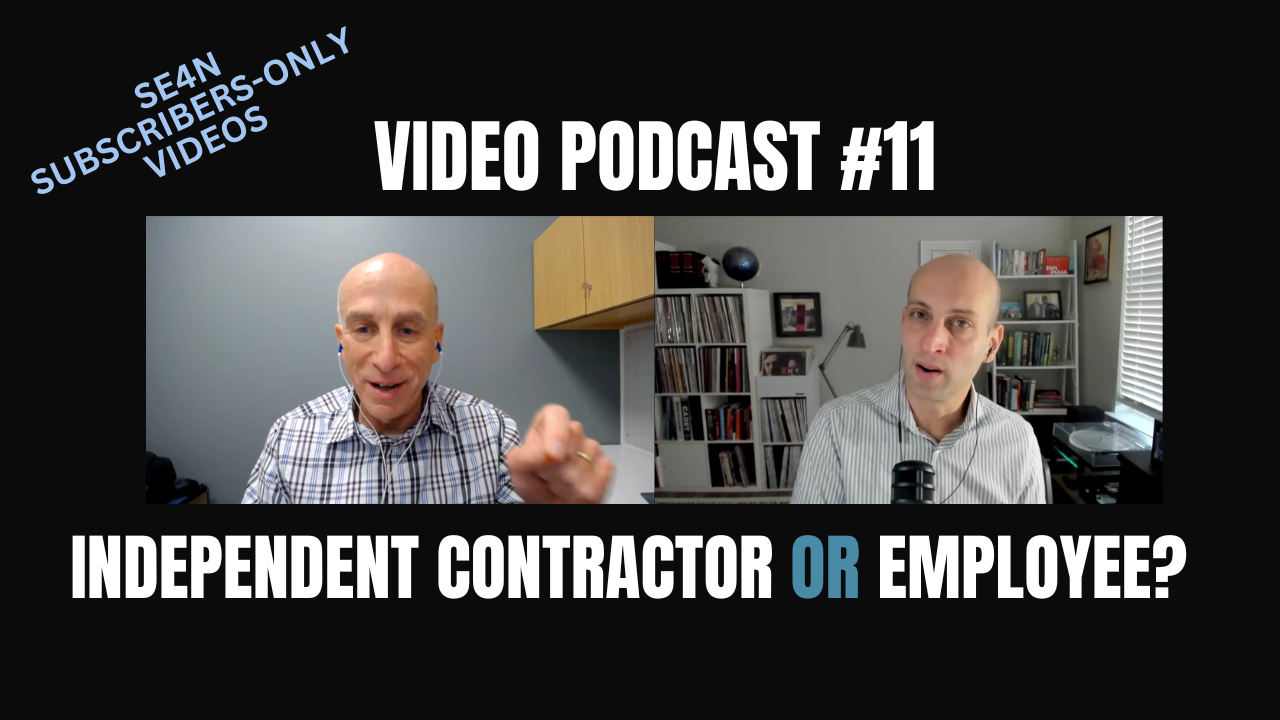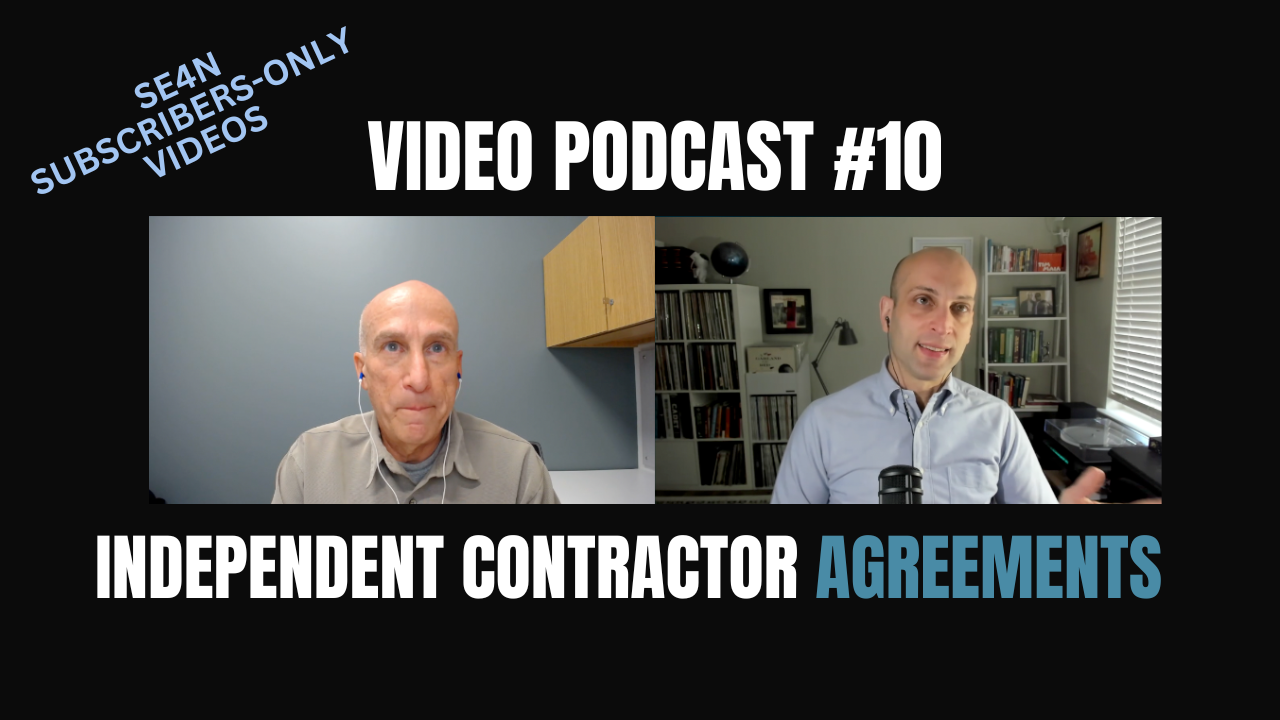
Blog.
Most Recent Posts

Q&A #179 – How can an organization enforce the terms of its sabbatical policy?
As with many employment policies, enforcing the terms of a sabbatical policy can raise difficult issues and should always be approached with caution and applied uniformly. Potential disciplinary options for employees who don’t comply can include warnings, suspension, or termination. Repayment (i.e. “clawback”) of paid leave and/or forfeiture of other benefits could also be possible if clearly set forth in the organization’s policies. However, going forward you may wish to consider changes to make your sabbatical policy more flexible and easier to administer.
![TEMPLATE: FLSA Exempt Employee Offer Letter Agreement [SUBSCRIBERS-ONLY]](https://images.squarespace-cdn.com/content/v1/5e6ccadfb4659c1d51df14d5/66a07f4e-6692-4751-9762-fc425b7e0b9f/pexels-heyho-7534172.jpg)
TEMPLATE: FLSA Exempt Employee Offer Letter Agreement [SUBSCRIBERS-ONLY]
This template employee offer letter agreement provides basic terms and conditions that are generally recommended for nonprofit organizations when hiring full-time salaried “W-2” staff who qualify as “exempt” under the Fair Labor Standards Act (FLSA). This sample document covers areas such as such as the employee’s initial title, duties, and salary, workplace expectations, outside business activities, confidentiality obligations, and more.

VIDEO PODCAST: Assessing Independent Contractor vs. Employee Status
Mike and Ben discuss the legal standards for determining whether a nonprofit organization is permitted to a treat a worker as an independent contractor rather than an employee, the risks of worker misclassification and the different ways this issue can come to light, the reformulated IRS “20-factor” test, common mistakes and misconceptions about these rules, and more.

VIDEO PODCAST: Drafting Independent Contractor Agreements
Ben and Mike discuss key issues nonprofits should consider when drafting independent contractor agreements for consultants and other service providers, including how independent contractor agreements impact worker classification, approaches to using and customizing template agreements, drafting compensation and scope of work terms, and more.

Q&A #167 – Does the Board of Directors have a responsibility to review staff policies?
The chief executive of a nonprofit organization usually has the primary responsibility for managing staff and human resources issues, including the development and implementation of most employee handbook policies. With some exceptions, nonprofit Boards are not expected to review and approve staff policies, but the Board’s oversight role includes a duty to take reasonable steps to confirm these policies are in place and updated periodically.

Q&A #160 – Are nonprofit organizations subject to the Fair Labor Standards Act (FLSA)?
Many nonprofits are technically not subject to federal Fair Labor Standards Act (“FLSA”) wage and hour law requirements due to rules that limit FLSA applicability to organizations that meet certain “enterprise coverage” or “individual coverage” thresholds. However, this is often a moot point since nonprofits are usually subject to state wage and hour laws, many of which are built upon federal FLSA definitions and exemptions. Consequently, most nonprofits must monitor changes in federal FLSA rules carefully as these may have state law compliance implications.

What Many Nonprofits Misunderstand About Employee Probationary Periods
A new hire’s first few months with a nonprofit organization is a crucial time for onboarding, communicating expectations, and setting up the employee to achieve success. However, the common framing and messaging of this time as a “probationary period” has led to many misunderstandings about the legal status of new employees and what employers should be aspiring to achieve during this introductory phase.
![Determining When to Involve the Board in HR Matters [SUBSCRIBERS-ONLY]](https://images.squarespace-cdn.com/content/v1/5e6ccadfb4659c1d51df14d5/1693932375384-7CTF3L66IYR1BRDGG2YP/marcelo-franchi-oMxU_lOmC84-unsplash.jpg)
Determining When to Involve the Board in HR Matters [SUBSCRIBERS-ONLY]
Nonprofit organizations must be extra vigilant when it comes to managing unexpected and often rapidly changing human resources (HR) issues. Hesitation to react can lead to dire consequences. However, reacting without meaningful contemplation can be equally dangerous. One critical consideration is how to develop guidance for discussions and messaging with Board members on changing HR issues.

Q&A #110 – Are small nonprofits required to provide paid interns with health insurance?
As discussed in Q&A #108, paid interns usually must be treated as employees. Whether a particular employee is required to be offered coverage under an organization’s group health insurance plan is determined first and foremost by the eligibility rules set forth in the plan document and summary plan description (SPD). For small-staffed organizations that do not meet the definition of an “applicable large employer” under the Affordable Care Act, the main consideration will be how the terms of the plan are drafted.

Q&A #108 – Can interns be paid as independent contractors?
While nonprofit organizations are usually afforded more latitude than for-profits to have unpaid volunteer interns, the decision to pay interns a stipend in lieu of employee wages raises difficult issues. Most paid interns would not fit the criteria for independent contractor treatment under the applicable laws. This means that paid interns must generally be treated as W-2 employees subject to minimum wage laws, payroll tax and withholding laws, and other requirements applicable to employees.

Returning to the Office is More than Just an HR Challenge
Returning to an in-office working environment is more complicated than many might expect. When the pandemic started, nonprofit organizations pivoted to remote working in a matter of days, driven mostly by mandatory restrictions over which we had no control. Returning to the office is not nearly so clear-cut. This time around we control the process, so we need to be extra thoughtful with our approach and inclusive with our actions.

Q&A #65 – Is it legal to implement a “use it or lose it” annual PTO policy?
Whether an organization is allowed to implement a “use it or lose it” policy for annual paid time off (PTO), under which employees would forfeit unused PTO by the end of each year, depends on the state laws applicable to where the employees work. This can be a difficult question with respect to PTO policies that combine vacation and sick leave, as some states have different rules for each type of leave. In general, it is usually permissible to have a limit on the carryover of unused leave or a cap on maximum leave accrual, but it is important to think through the details and carefully review the laws of all applicable states.

Q&A #52 – Is it better to provide combined PTO or have separate vacation and sick leave policies?
In evaluating whether to provide combined PTO vs. separate vacation and sick leave policies, there is no one answer that applies to all organizations. Both approaches have pros and cons. The choice involves weighing which pros and cons best match your organization’s priorities and capabilities. In general, combined PTO policies are easier to administer, while separate vacation and sick leave policies potentially have lower financial burdens on the organization.

Q&A #21 – Which state’s laws govern our telecommuting employees?
You have correctly identified an extremely complex issue for which you will certainly need individualized advice. The issue of which state employment laws govern telecommuting employees impacts your organization’s responsibilities on a wide range of laws including but not limited to unemployment insurance, income tax withholding, wage & hour laws, workplace safety, anti-discrimination, and paid and unpaid leave.
![EBOOK: Nonprofit Legal Basics Primer [SUBSCRIBERS-ONLY]](https://images.squarespace-cdn.com/content/v1/5e6ccadfb4659c1d51df14d5/4dd69115-399e-461e-a23f-20a65c6608b8/tsvetoslav-hristov-iJ-uantQb9I-unsplash.jpg)
EBOOK: Nonprofit Legal Basics Primer [SUBSCRIBERS-ONLY]
This 48-page primer provides an overview of the key areas of nonprofit law governing 501(c)(3) organizations, including federal tax law requirements, state nonprofit corporation and tax law, fundraising laws, and employment law basics. This primer is tailored for organizations that are incorporated and operated in the District of Columbia, but many of the subject areas are useful for organizations based in other states.